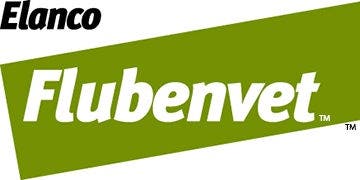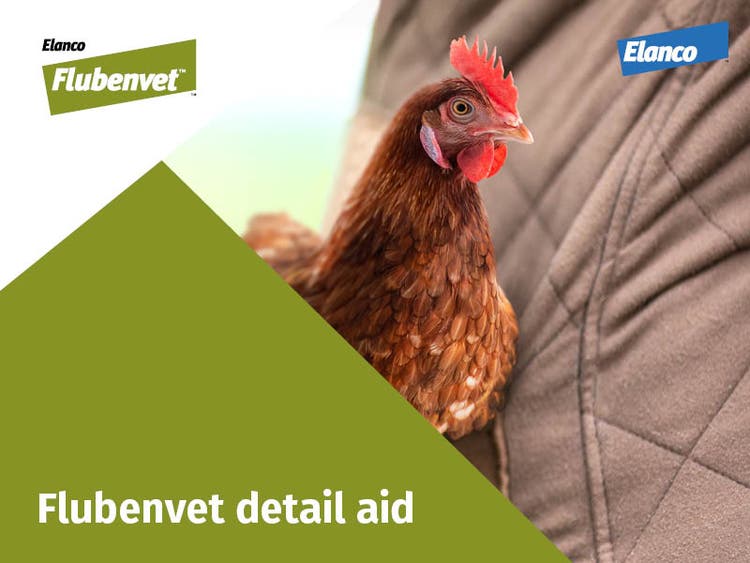Do you know which worms are present on your farm?
Worm burdens present a constant challenge to all poultry producers, but unless you know which worms you are dealing with, it is difficult to implement a robust worming programme.
Intestinal worms are the most common internal parasite affecting chickens, and free-range birds are at constant risk of developing an infestation due to exposure to their own faeces both indoors and outdoors.
Jeremy Marsh, Layer Strategic Account Manager at Elanco, says that due to the number of different species of worms and the way that laying hens are housed, the risk of these damaging parasites is inevitable1.
“It’s important to work with your vet to undertake faecal egg counts or post-mortem, but neither method is perfect. This can help you work together on a robust worming programme, as not all wormers control all species of worms,” he explains.
There are four key worm species which impact bird health and performance: large roundworms, hairworms, caecal worms and gapeworms.
While a heavy burden of any of the four main species can lead to disease and, at worst, death, Capillaria carry the greatest risk. The Capillaria species is also known as the “hairworm” and can be found in the stomach and intestines of chickens2. At around 1.5cm long, these worms are the smallest species affecting chickens, and are almost invisible to the naked eye due to their thread-like appearance. However, despite their small size, these worms are often considered the most dangerous3, as even small burdens can be fatal for birds4.
The symptoms of Capillaria can be varied but often include reduced egg production, weight loss, reduced food intake, diarrhoea, anaemia and death. Another symptom is the birds looking stressed and generally unwell, appearing dull and hunched.
Like all intestinal worm species, the lifecycle starts with an egg passed out in the faeces, which is ingested and then goes through several larval stages within the bird before becoming an adult, which can produce eggs and start the cycle again. In favourable conditions, the worm’s lifecycle can take just a few weeks. However, it should be assumed that there are several lifecycle stages present in birds at any one time and it’s necessary to control all stages to get on top of an infestation.

Controlling Capillaria
There are limited wormers available which control this specific species of worms, but Flubenvet™ controls all major species of worms at all stages, including Capillaria, without needing to increase the dose rate to do so5. Lincolnshire egg producer James Gent has implemented a robust preventative worming strategy since he started producing eggs 20 years ago.
“Flubenvet has formed an integral part of our worming strategy since day one and it has been fundamental in helping birds to reach their performance potential and meet our targets5. Back then this wormer was the only suitable treatment available, and while there are now a few alternatives on the market, there’s nothing that matches its efficacy in my opinion,” says Mr Gent.
He explains that his birds are treated with the product every six to eight weeks as part of a robust preventive programme. Treating regularly stops the problem before birds show visible clinical symptoms and performance is impacted. “Every packer wants to be supplied with good eggs and investing in a quality wormer that does what it says on the tin is worth it when you’re rewarded for producing quality eggs,” says Mr Gent.
Mr Marsh adds that Flubenvet has a zero-day withdrawal for chicken eggs, so production can continue during and after treatment. In addition, it has no effect on egg production, nor are there any known adverse effects or special precautions to consider, when used at the recommended dose rate, making it an ideal complete wormer for your flock5.
More Materials

Flubenvet™ 5% w/w premix for medicated feeding stuff.
A broad spectrum oral anthelmintic containing Flubendazole.

Flubenvet detail aid
Discover more about how worms affect the health and welfare of your birds.
- Knott, C., et al, 2012. Worms in Free-Range Hens [online]. Sheffield: The Poultry Site.
- Worms in Chickens [online]. Exmouth: The Chicken Vet.
- Veterinary Practice, 2011. Common poultry worms [online]. Swindon: Susan McKay.
- The Happy Chicken Coop, 2015. The Complete Guide to Chicken Parasites: Part 2.
- Flubenvet SPC.
